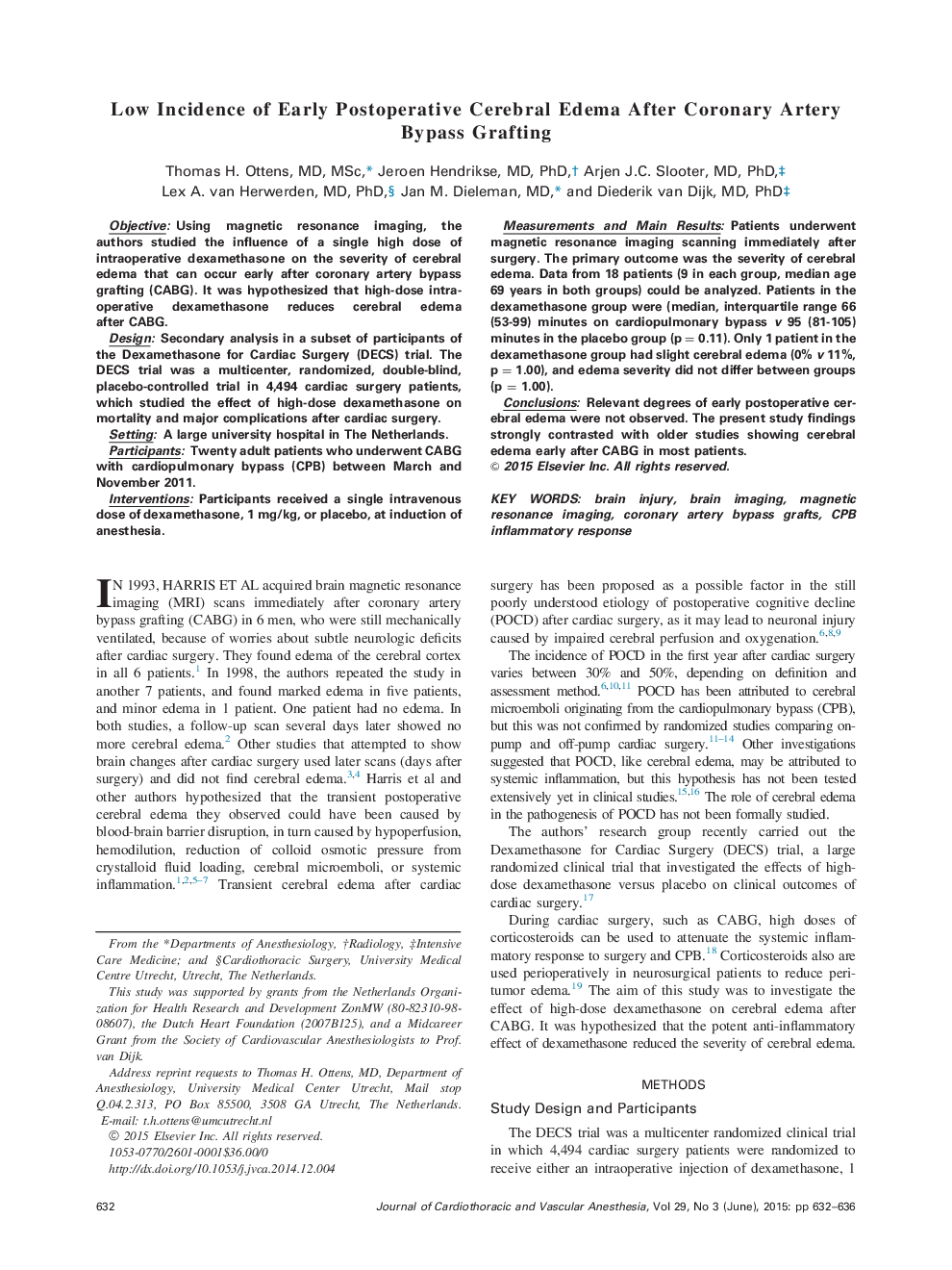| Article ID | Journal | Published Year | Pages | File Type |
|---|---|---|---|---|
| 5883890 | Journal of Cardiothoracic and Vascular Anesthesia | 2015 | 5 Pages |
ObjectiveUsing magnetic resonance imaging, the authors studied the influence of a single high dose of intraoperative dexamethasone on the severity of cerebral edema that can occur early after coronary artery bypass grafting (CABG). It was hypothesized that high-dose intraoperative dexamethasone reduces cerebral edema after CABG.DesignSecondary analysis in a subset of participants of the Dexamethasone for Cardiac Surgery (DECS) trial. The DECS trial was a multicenter, randomized, double-blind, placebo-controlled trial in 4,494 cardiac surgery patients, which studied the effect of high-dose dexamethasone on mortality and major complications after cardiac surgery.SettingA large university hospital in The Netherlands.ParticipantsTwenty adult patients who underwent CABG with cardiopulmonary bypass (CPB) between March and November 2011.InterventionsParticipants received a single intravenous dose of dexamethasone, 1 mg/kg, or placebo, at induction of anesthesia.Measurements and Main ResultsPatients underwent magnetic resonance imaging scanning immediately after surgery. The primary outcome was the severity of cerebral edema. Data from 18 patients (9 in each group, median age 69 years in both groups) could be analyzed. Patients in the dexamethasone group were (median, interquartile range 66 (53-99) minutes on cardiopulmonary bypass v 95 (81-105) minutes in the placebo group (p = 0.11). Only 1 patient in the dexamethasone group had slight cerebral edema (0% v 11%, p = 1.00), and edema severity did not differ between groups (p = 1.00).ConclusionsRelevant degrees of early postoperative cerebral edema were not observed. The present study findings strongly contrasted with older studies showing cerebral edema early after CABG in most patients.
